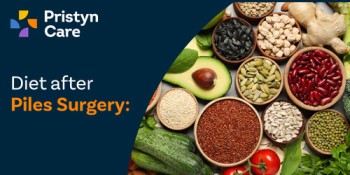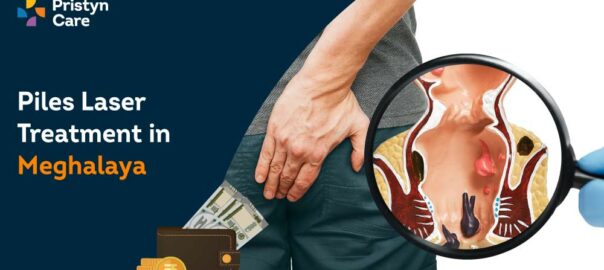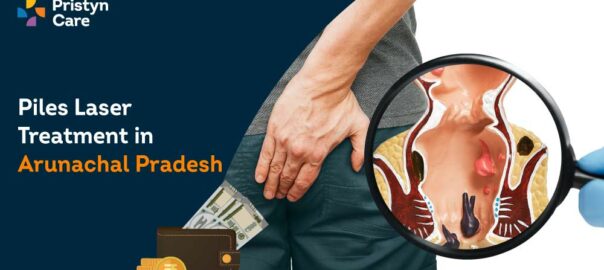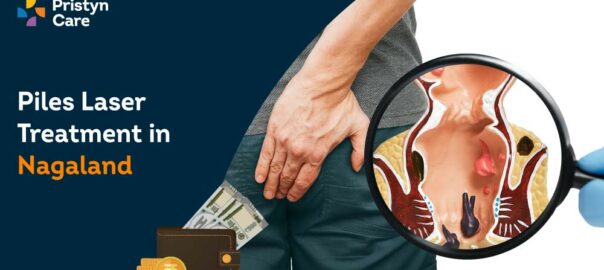![]() Views: 343
Views: 343
Diet after Piles Surgery: What Foods to Eat after Piles Laser Surgery
In India, piles, also known as haemorrhoids, is a common health concern affecting many individuals. Piles are swollen veins in the lower part of the rectum and anus. When these veins become strained or pressured, they can cause discomfort and even severe pain.
Dedicated Support at Every Step!
Our Doctors are available 24 hours a day, 7 days a week to help you!
With advancements in medical technology, laser surgery is now being widely used to treat piles. This procedure not only offers a high success rate but also ensures quicker recovery. An integral part of this recovery process is the diet after piles surgery. Consuming the right foods can aid healing, decrease discomfort and prevent recurrence.
Table of Contents
Understanding Piles and Laser Surgery
Piles occur due to chronic constipation, heavy lifting, or during pregnancy when pressure increases in the anal passage. The symptoms of piles may include pain during bowel movements, bleeding, itching, or lump near your anus.
Piles are classified into four stages. Stage one comprises small inflammations that are not visible. Stage two involves larger swellings that may get pushed out while passing stool but return back inside on their own. Stage three piles hang outside the anus and need to be pushed back inside, while stage four piles permanently hang outside and cannot be pushed back.
Laser surgery is a minimally invasive procedure that is becoming an increasingly popular treatment option for piles in India due to its numerous benefits over traditional methods. In this procedure, a small hand-held probe is used to emit laser energy which helps in shrinking or removing the haemorrhoidal tissue. The advantages of laser surgery include less pain, shorter operation time, no requirement of general anaesthesia and faster recovery period.
Post-surgery, adhering to a proper diet is necessary for a successful recovery. As you navigate through your recovery, it's important to remember that your dietary choices play a significant role in your healing process. Now, let us discuss in detail about specific foods to eat after piles surgery.
No Cost EMI, Hassle-free Insurance Approval
Dietary Changes Post Piles Laser Surgery
Having undergone a piles laser surgery, your body requires time and the right nutrition to heal. The road to recovery often involves more than just medication, it includes dietary changes as well. Post surgery, your diet plays an integral role in your healing process and can speed up your return to normalcy.
A diet after piles surgery should be such that it promotes smooth bowel movements, prevents constipation, and helps in maintaining overall digestive health. Remember, straining during bowel movements can increase pressure on the healing tissues and slow down your recovery. So, let's discuss the kind of foods that can be beneficial in your recovery phase.
Foods to Include in Your Diet Post Surgery
High-Fiber Foods
Fibre-rich foods are your best friends post piles surgery. Fibre adds bulk to your stool, making it softer and easier to pass. This reduces the need for straining during bowel movements which is beneficial for your healing process.
Some highly recommended fibre-rich foods are:
- Whole grains like brown rice or oats
- Fruits such as apples, bananas and pears
- Vegetables like broccoli, carrots and Brussels sprouts
- Legumes such as beans, lentils and chickpeas
Remember to incorporate these gradually into your diet to avoid upsetting your stomach.
Hydrating Fluids
Hydration is key in boosting digestion and facilitating smoother bowel movements. Drinking plenty of fluids helps soften the stool, which reduces the strain on the surgical site during bowel movements.
Here are some hydrating fluids you can include in your diet:
- Water: It's the best way to stay hydrated. Aim for at least eight glasses a day.
- Fresh fruit juices: Apart from hydration, they also provide essential vitamins.
- Herbal teas: These are calming and soothing for the digestive system.
- Soups: They not only keep you hydrated but also provide necessary nutrients.
Taking these dietary steps after your piles surgery can make your recovery smoother and more comfortable. Always keep in mind, the right diet after piles surgery can significantly contribute to your health and well-being during this crucial phase of recovery.
Foods to Avoid Post Surgery
After undergoing a piles surgery, there are certain foods that you need to avoid in order to expedite your healing process. Some foods can exacerbate symptoms or slow healing and it's important that you are aware of these. For instance, foods that are spicy or high in fibre can irritate the digestive system and make your recovery period more uncomfortable.
Additionally, it would be wise to steer clear of alcohol and caffeine during your recovery period. Both alcohol and caffeine can dehydrate the body, which in turn might affect the healing of vulnerable tissues post-surgery. Moreover, these substances could interact with any medication prescribed by your doctor, leading to undesirable side effects.
How to Maintain a Balanced Diet after Piles Surgery
Maintaining a balanced diet after undergoing piles surgery is crucial for a swift and successful recovery. Here are a few tips to ensure balanced nutrition while following the recommended post-surgery diet:
- Include plenty of protein: Protein aids in tissue repair and boosts the immune system. Foods like lean meat, fish, eggs, dairy products and legumes are all good sources.
- Stay hydrated: Drinking plenty of fluids, preferably water, will prevent dehydration and constipation.
- Include easily digestible foods: Foods such as rice, bananas, applesauce and toast are easily digestible and gentle on the stomach.
- Eat small frequent meals: Instead of three large meals, aim for five to six small meals throughout the day.
Alongside maintaining a balanced diet, incorporating light physical activity into your daily routine can play a significant role in your recovery. Simple exercises such as walking can help stimulate bowel movements and reduce the risk of constipation. However, before starting any physical activity post-surgery, always consult with your doctor to ensure it's safe. Remember, proper diet and adequate exercise are key to making a quick recovery after a piles surgery!
Conclusion
In conclusion, we cannot over-emphasise the importance of having a proper diet after undergoing piles laser surgery. The foods you eat play a significant role in how well your body heals and recovers post-surgery.
Adhering to the guidelines provided by your doctor about what to eat can significantly ease your journey towards recovery. Incorporating fibre-rich foods like fruits, vegetables, and whole grains can help soften stools and reduce strain on the surgical area. Staying hydrated by drinking ample water is also crucial, as this aids digestion and prevents constipation.
Choosing the right diet after piles surgery is not just about speeding up recovery; it's about enhancing your overall health and preventing a recurrence of piles. It might initially feel challenging to make dietary changes, especially if they involve foods you are not accustomed to eating. However, remember that these changes are for your betterment.
We encourage you to follow the dietary guidelines diligently and routinely consult with your family physician for any queries or concerns you may have. Remember, each small step you take towards better eating habits is a step towards a smoother recovery and healthier life. Your cooperation and determination can help ensure a successful transition back to normal life post-surgery.
FAQs
- Can I eat dairy products in my diet after piles surgery?
It is advisable to limit your intake of dairy products as they can cause constipation. However, if you wish to include dairy in your diet, opt for low-fat or non-fat versions. - How can I ensure proper hydration in my diet after piles surgery?
To maintain proper hydration, drink at least 8-10 glasses of water daily. You can also include fruit juices, coconut water and soups in your diet. - Why are fibre-rich foods important in a diet after piles surgery?
Fibre-rich foods add bulk to the stool, making it easier to pass. This helps reduce the pressure on the anal area, promoting healing after piles surgery. - How does a balanced diet aid in recovery after piles laser surgery?
A balanced diet ensures that your body gets all the essential nutrients needed for healing and recovery. It helps strengthen the immune system and reduces risk of infections. - Are there any specific fruits or vegetables I should include in my diet after piles surgery?
Fruits and vegetables rich in fibre, such as apples, pears, broccoli and spinach are beneficial. They not only improve digestion but also provide necessary vitamins and minerals. - Can I consume meat in my diet after piles laser surgery?
You can include lean meats like chicken and fish in your diet, but avoid red meat as it can lead to constipation. - How long should I follow this diet after piles surgery?
You should follow this diet until you fully recover and beyond. Maintaining a healthy diet will help prevent recurrence of piles.
What role does exercise play in recovery post piles laser surgery?
Light exercise such as walking can improve circulation and speed up the healing process. However, avoid strenuous activities until your doctor gives you the all-clear.











